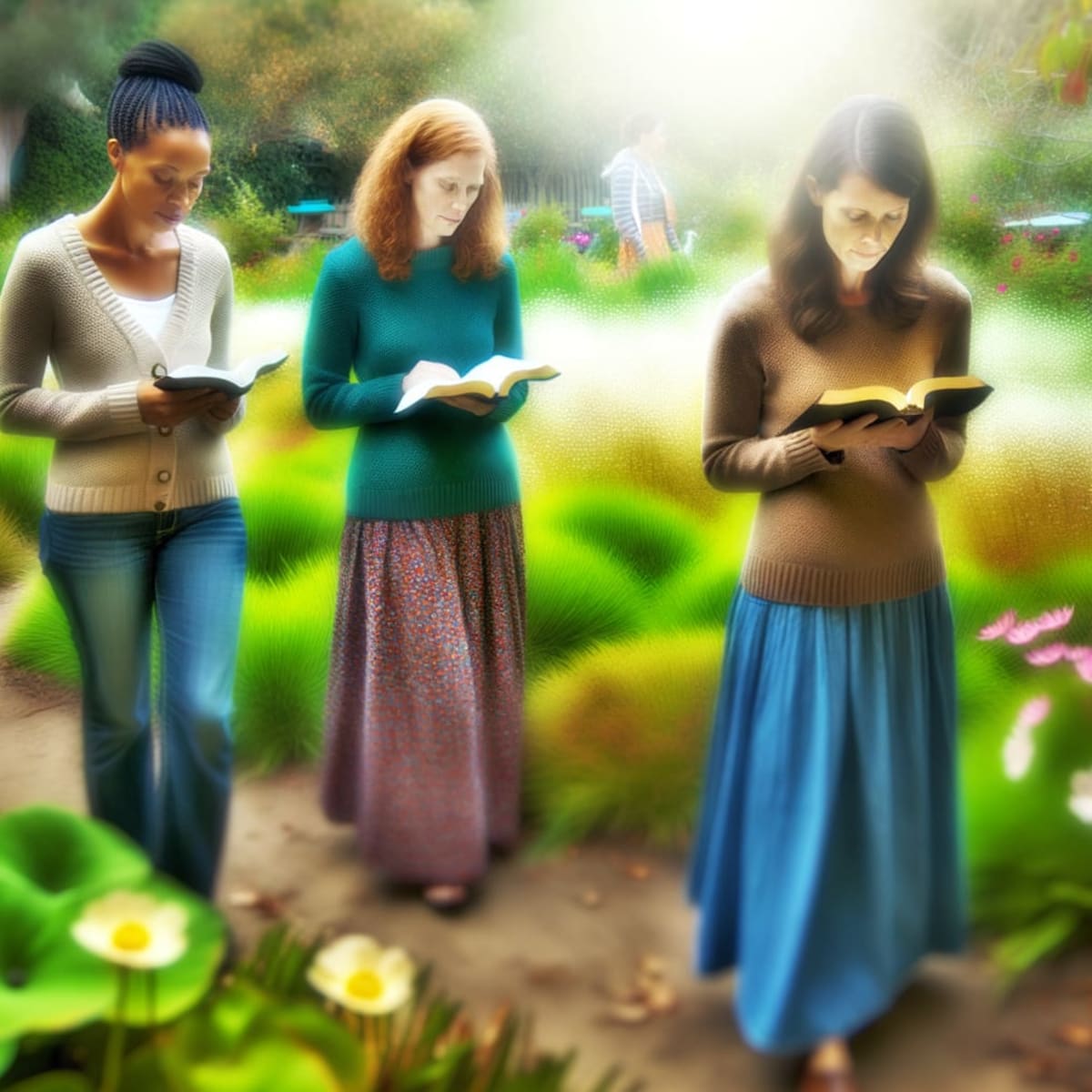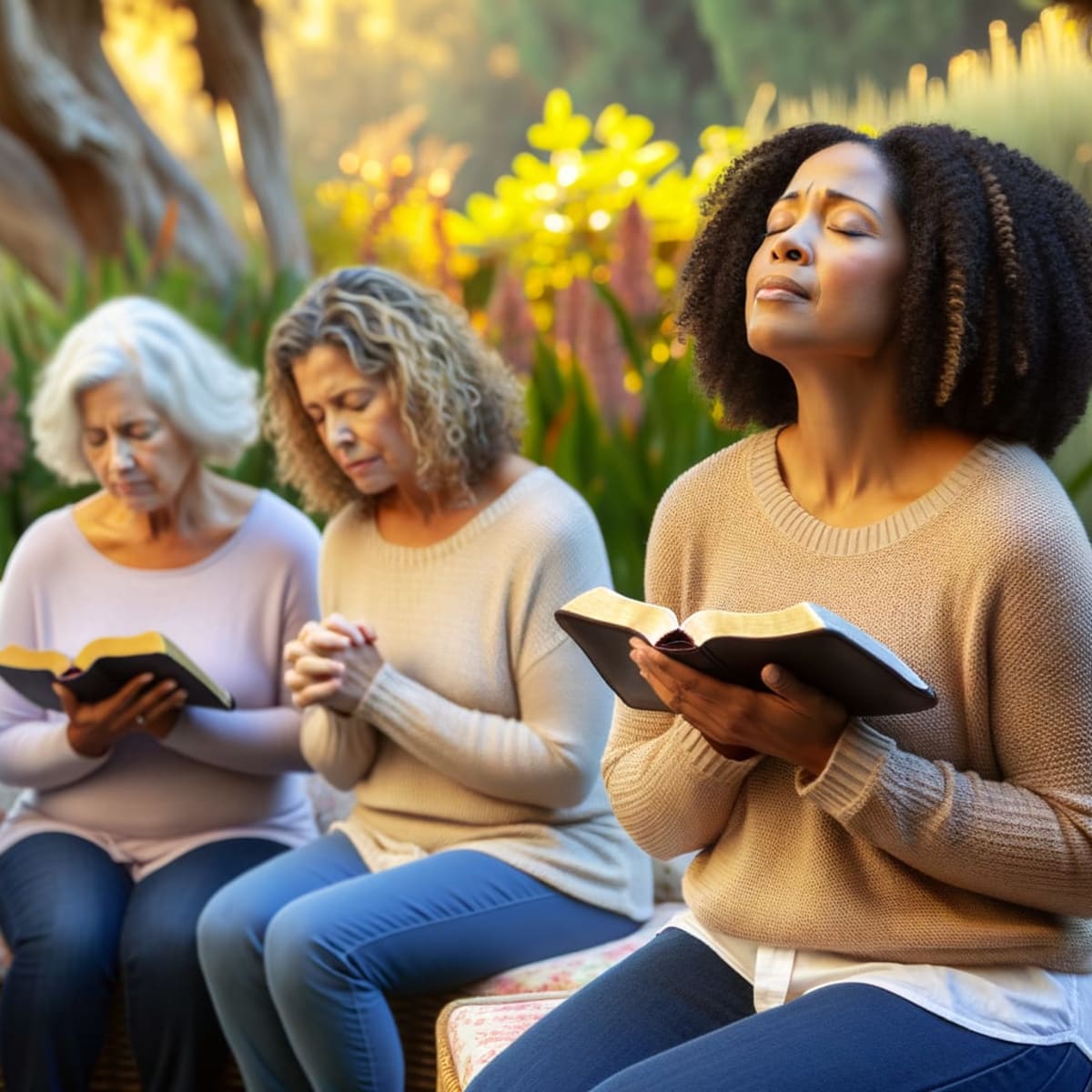Finding hope after loss by growing spiritually and embracing suffering with Christ
Can I be honest with you? "Finding hope after loss" is a phrase that used to sound a little too neat to me. Hope? In something as raw and real as loss? Sometimes it feels like all you can do is survive another day. But after walking with so many friends and hearing stories, I've learned it’s exactly when everything feels lost that real hope can take root.
Let me tell you about a conversation I recently had with my friend Tiffany on our podcast. Her story was not something out of a movie. It was a real family standing on the sidewalk, watching their brand new house burn. Everything they worked for, every plan, every room built with care—all gone. And yet, even as she shared the hard details, I kept hearing something in her voice I can only describe as a quiet, steady hope. That’s what I want to talk about today: How do we go from devastation to finding faith after loss? How do suffering and spiritual growth get woven together? the stories of Job and Joseph show finding purpose in suffering. Let’s get practical, real, and honest about where hope shows up—when life feels most uncertain and we have to start over, including spiritual self-care tips.
What does finding hope after loss actually look like in real life?
Watching dreams burn and waking up anyway
I remember Tiffany describing those first moments. The chaos, the confusion, the way everything you know changes in a split second. And if you’ve ever experienced your own version of loss—a relationship, a job, a dream—I bet you know that split second when you wonder if God is still here. The one where nothing feels safe anymore. That’s when the questions start: “Will life ever feel okay again? Is God still here? Am I actually going to get through this?”
When all is lost, finding hope after loss becomes more than a saying. It’s a minute-by-minute decision to reach out, to let people care for you, to receive grace when you have nothing to give. Tiffany’s family was surrounded by their community bringing hot meals, setting up Christmas trees, grabbing school uniforms. That ordinary, tangible kindness? That’s building Christian community support during adversity—hope with hands and feet. We don’t get to skip the pain, but we do get to experience love in a whole new way, finding blessings in hard times. Even on the worst days, hope after loss isn’t gone. It might just look different than we thought.
Moving from shock to connection
One thing that stood out was how quickly Tiffany’s family was wrapped up by their neighbors and friends. Sometimes, “finding hope after loss” looks like letting someone pack your pantry because you can’t stop crying. Or watching your kids play and laugh, even though their rooms are now just ashes and memories. The truth: loss doesn’t just take things away. It quietly opens your life to receive something even more necessary—community. And that’s how hope grows roots, even in the ashes.
- Friends showed up (with food, hugs, things you didn’t even know you’d miss)
- Family kept things moving, creating a sense of normal that felt like a gift
- Church and neighbors became God’s arms, steady and practical
How suffering can lead to spiritual growth and a deeper faith
Letting go of control and finding safety in God
If you know me, you know I love a good plan. But finding hope after loss reminded me—again—that plans are sometimes just an illusion of control. Tiffany talked about that feeling of helplessness. Her family did everything “right”, but you can’t plan away suffering. Maybe that’s why Jesus told us in John 16:33, “You will have suffering in this world. Be courageous! I have conquered the world.” (CSB) That’s what moved me most about Tiffany’s story. The chaos didn’t have the final word. Christ’s faithfulness did. Suffering isn’t the goal, but sometimes it’s the classroom where we truly meet Jesus. And not just the “Sunday School Jesus,” but the real Christ who sits in the ashes with us—who knows our loss and carries it with us.
- Loss forces us to hand over what we can’t control
- It invites us to build deeper roots of faith
- Christ becomes more real when answers are scarce and comfort is needed
Learning to expect suffering without losing hope
Let me tell you something counterintuitive: Expecting suffering can actually help you with finding hope after loss. Not in a fearful way but in a grounded, biblical way. Tiffany said something I can’t forget: “Scripture says to expect trials, but also to know God will walk with you.” Suffering isn’t a sign God has left. It’s a reminder that the world is not our home, but He is always near. When you live with that, loss will hurt, but it won’t destroy. You might cry, but you’ll also see the beauty God weaves back into broken places. Isn’t that what we all long for? Real hope, not in easy circumstances, but in a God who doesn’t waste one single tear.
How do we actually grow closer to Christ through suffering?
Learning from Job and Joseph
I love when stories in the Bible match what’s happening in our real life. Job lost so much, but still said, “Shall we accept only good from God and not adversity?” (Job 2:10, CSB) He didn’t get all the answers, but he did stay close to God. Joseph was betrayed, suffered for years, and then saw how God used it for good. Sometimes, like Joseph, you get the long view and find purpose. Sometimes, you’re like Job, trusting God in the dark. Either way, suffering becomes a pathway to know Christ in a way comfort never could.
Letting suffering reshape what we value
Tiffany said she would never trade her suffering, because it brought her closer to Christ. I get that. Loss rewires what matters most. Suddenly, possessions, comfort, and plans lose their grip. You realize that what you lost pales in comparison to what you gained in intimacy with God. Philippians 3:8-10 says, “I count everything as loss because of the surpassing worth of knowing Christ Jesus my Lord...that I may know him and the power of his resurrection.” (CSB) It makes sense, right? Loss can empty our hands, but it fills our hearts with what lasts forever.
Practical ways to hold on to hope and grow through loss
- Admit your pain to God (He can handle it - you don’t have to hide)
- Let others carry you (hope grows in community, never in isolation)
- Root yourself in Scripture before and during suffering
- Notice God’s small kindnesses (sometimes hope is contacts, warm meals, or a new Bible for your kid)
- Ask God what He wants you to learn during this time
Starting over: What comes after the ashes?
Rebuilding with perspective and gratitude
After the fire, Tiffany’s family rebuilt their house. But the real rebuilding happened inside their hearts. They learned to see God’s hand in small details, like getting simple changes with a new house, a redo on things they would’ve overlooked before. Isn’t that just like God? Sometimes what you think is lost forever is actually the start of something new. That’s why finding hope after loss matters - it’s what lets us trust that God always works new beginnings, even after the worst endings.
Hope that outlasts pain
You might be in the ashes right now. Or maybe you’re on the other side, but the memories still sting. Can I encourage you? Hope is not naive. It’s honest and persistent. It looks for God in every detail. It clings to the promises that loss is not the end. “He will wipe away every tear from their eyes. Death will be no more; grief, crying, and pain will be no more, because the previous things have passed away.” (Revelation 21:4, CSB)
That verse gets me every time. One day, the pain won’t even be a memory. But while we’re here, as a community, let’s keep looking for the ways God is making all things new. That’s the root of finding hope after loss: It’s never too late for God to redeem your story.
How to encourage each other as we find hope after loss
Let’s put it into practice together
After hearing Tiffany’s story on the podcast, I’m reminded how important it is to talk about our losses. To sit with each other, to cry, to bring a meal, to send a text. That is how we help our friends and neighbors find hope after loss. Nobody is meant to walk through suffering alone. One small act of love can plant seeds of hope for years to come.
- Reach out to someone experiencing loss (even a simple message matters)
- Listen with empathy and let them share their story
- Pray with and for them, out loud if you can
- Offer real, practical support (childcare, errands, a funny story on a hard day)
- Point back to Christ without polished answers—sometimes just sit with them in the hard stuff
My prayer for you
My friend, whether you’re standing in the ashes or helping someone who is, I pray you experience God’s kindness in the ordinary, and His hope in the places you least expect. Let’s be people who put “finding hope after loss” into practice, sharing our stories, reaching out, and trusting God for new beginnings—even in the things we thought were lost forever.
If this message spoke to you, be sure to catch the full podcast episode, "Tested by Fire, Held by Grace." And if you know someone in a season of rebuilding, would you pass this along? We’re stronger when we walk together. Remember, small shifts in perspective can change everything.





